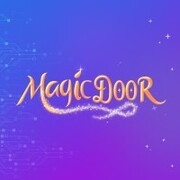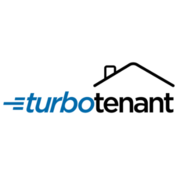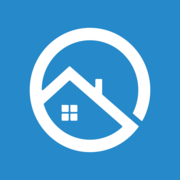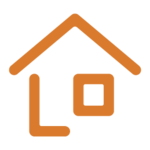
Best Rental Property Management Software 2026
What is Rental Property Management Software?Rental Property Management Software is designed to help landlords, property owners, and managers oversee residential rental properties, including managing tenants and filling vacancies. The activities property management systems help users administer include: providing a resident portalmanaging and tracking lease contractsfilling vacanciescollecting rentmanaging maintenance requestslogging repairsmanaging physical assetstracking income and expensesA ...
We’ve collected videos, features, and capabilities below. Take me there.
All Products
Learn More about Rental Property Management Software
What is Rental Property Management Software?
Rental Property Management Software is designed to help landlords, property owners, and managers oversee residential rental properties, including managing tenants and filling vacancies. The activities property management systems help users administer include:
providing a resident portal
managing and tracking lease contracts
filling vacancies
collecting rent
managing maintenance requests
logging repairs
managing physical assets
tracking income and expenses
A software-as-a-service (SaaS) rental property management software can help property owners and managers track all of these tasks from a cloud-based platform, and can be easily accessed from anywhere with an internet connection. This is especially helpful for property managers who need to manage multiple property locations and assets from a single place. However, there are on-premise platforms available for property managers and owners that prefer to keep all of their information in-house (outside of the public cloud).
Some vendors offer specific features to help manage student living, multi-family, or senior living residential properties. Others may offer third-party integrations that integrate renters’ insurance or inspection information into the software.
Rental property management software is closely related to real estate property management software. These two types of software share many features, though rental property software is more specifically designed for landlords and property owners and managers. On the other hand, real estate property management software can be used by residential property managers, or real estate professionals to oversee different types of property portfolios (e.g. residential, commercial, investment).
Rental Property Management Software Features
Most rental property management software will provide the following features and capabilities:
Online property listing creation
Vacancy postings
Online applicant portal
New tenant screening
Lease contract creation
Electronic document signing
Rent collection and delinquency tracking
Maintenance requests and cycle management
Owner/administrator and tenant portal
Document storage for leases, insurance, eviction notices, etc
Reporting dashboard
Insurance management
Income and expense tracking
Online payments
1099 e-filing
Marketing capabilities
Rental Property Management Software Comparison
Consider the following factors before deciding to purchase a rental property management software:
Implementation type: are you looking for an entirely cloud-based platform, or an on-premise deployment that provides users with control and access over user data and information? Two advantages of using cloud-based software are the ease of implementation, lower cost of subscription pricing, not needing to upgrade the software system yourself, and the ability to access the platform from anywhere with an internet connection. Conversely, on-premise deployments mean users can store data locally. Users may also have more freedom in terms of configuring the platform to meet their specific business needs.
Cost: are you looking for a platform that charges a lower per-unit price that doesn’t have advanced features, or a more high-end platform? Per-unit prices can range from $1/unit to $5/unit. Some platforms may charge a monthly or annual fee instead of using a per-unit pricing structure. There may also be additional costs to consider, depending upon the product. For example, along with the subscription cost or one-time fee you may need to pay upgrade fees, bank account set-up fees, document eSignature fees, etc. Establishing a budget is a critical first step, especially if you oversee a large property with hundreds of units.
Integrations: do the rental property management systems you're considering integrate with the other business tools you use? For example, if you’re using a separate content management system (CMS), accounting platform, payment gateway, or customer relationship management (CRM) system—check to see if the rental property management solution you’re looking at will integrate with these systems.
Pricing Information
Pricing models vary depending on the product, the number of features included, and the number of rental units that need to be managed. Some vendors charge based on the number of rental units that are managed per month. For these products, the cost per unit can range from $1/unit to $4/unit.
Other vendors charge based on the number of modules needed (e.g. electronic leases and signing, online payments, tenant screening, etc.). Users can expect to pay between $10 to $35 per month for more basic solutions. More advanced solutions will cost between $60 and $2,000+ per month, depending on the number of units managed.
Rental Property Management FAQs
What does rental property management software do?
Why should property owners and managers use rental property management software?
Investing in a rental property management solution allows building owners and managers to streamline communication with their residents, track various expenses and upgrades to the property, and store important documents such as lease contracts and eviction notices.
For residential property owners and landlords, the alternative is often manually tracking all of these things and keeping files in physical storage. So comparatively, this type of software helps rental property owners be more efficient, keep track of documents digitally, and have better communication with tenants.
What are the best rental property management systems?
Some of the most popular rental property management software systems include:
Learn more about different rental property management solutions and what to consider before making a purchase here.
How much does rental property management software cost?
The majority of rental property management systems charge on a per-unit basis. Prices can range from $1-$4 per unit, depending on how extensive the platform is. However, there are also several free rental property management solutions. Free rental property options include:
While ideal for property owners and landlords on a budget, free rental property management software often does not offer all the features that paid options do. Some may specialize in one aspect of property management, such as collecting rent online or setting up a property listing website.
























